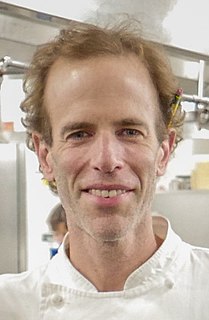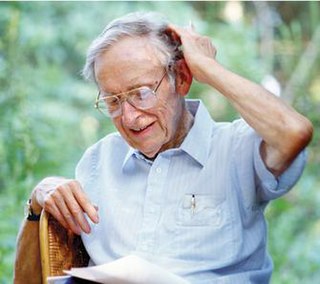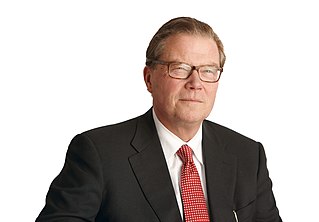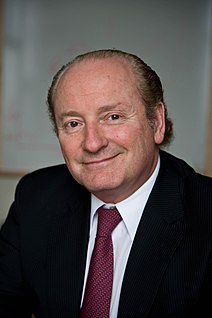A Quote by Garrett Hardin
However, I think the major opposition to ecology has deeper roots than mere economics; ecology threatens widely held values so fundamental that they must be called religious.
Related Quotes
Early ecologists soon realised that, since humans are organisms, ecology should include the study of the relationship between humans and the rest of the biosphere. ... We don't often tend to think about the social sciences (history, economics and politics) as subcategories of ecology. But since people are organisms, it is apparent that we must first understand the principles of ecology if we are to make sense of the events in the human world.
My Prime Minister regards the economy as our highest priority and forgets that economics and ecology are derived from the same Greek word, oikos, meaning household or domain. Ecology is the study of home, while economics is its management. Ecologists try to define the conditions and principles that enable a species to survive and flourish. Yet in elevating the economy above those principles, we seem to think we are immune to the laws of nature. We have to put the ‘eco’ back into economics.
In recent years it has become impossible to talk about man's relation to nature without referring to "ecology"...such leading scientists in this area as Rachel Carson, Barry Commoner, Eugene Odum, Paul Ehrlich and others, have become our new delphic voices...so influential has their branch of science become that our time might well be called the "Age of Ecology".
When the study of the household (ecology) and the management of the household (economics) can be merged, and when ethics can be extended to include environmental as well as human values, then we can be optimistic about the future of humankind. Accordingly, bringing together these three ‘E's' is the ultimate holism and the great challenge for our future.
Shallow ecology is anthropocentric, or human-centred. It views humans as above or outside nature, as the source of all value, and ascribes only instrumental, or 'use', value to nature. Deep ecology does not separate humans - or anything else - from the natural environment. It does see the world not as a collection of isolated objects but as a network of phenomena that are fundamentally interconnected and interdependent. Deep ecology recognizes the intrinsic value of all human beings and views humans as just one particular strand in the web of life.
I think our intelligence is a source of toxicity to nature and discomfort to ourselves unless our values are based on planetary values, are linked to the values of the rest of nature. Intelligence is not a license to trample. The proper role of intelligence in a planetary ecology is that of gardener, caregiver and maintainer of balance.
And there is this fact of the twelve baskets: why twelve? What does it mean? Twelve is the number of the tribes of Israel, symbolically it represents all the people. And this tells us that when food is shared equally, with solidarity, nobody is devoid of the necessary, each community can meet the needs of the poorest. Human ecology and environmental ecology go hand in hand.





































